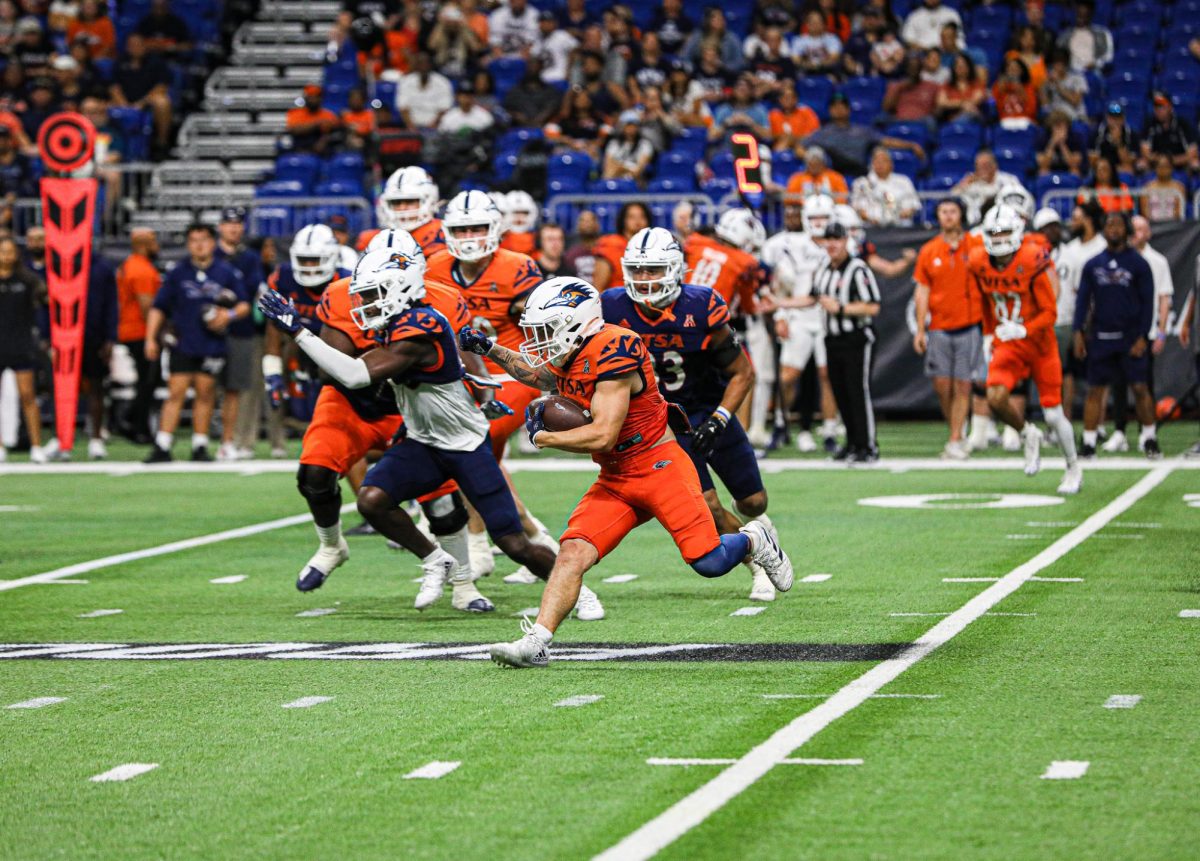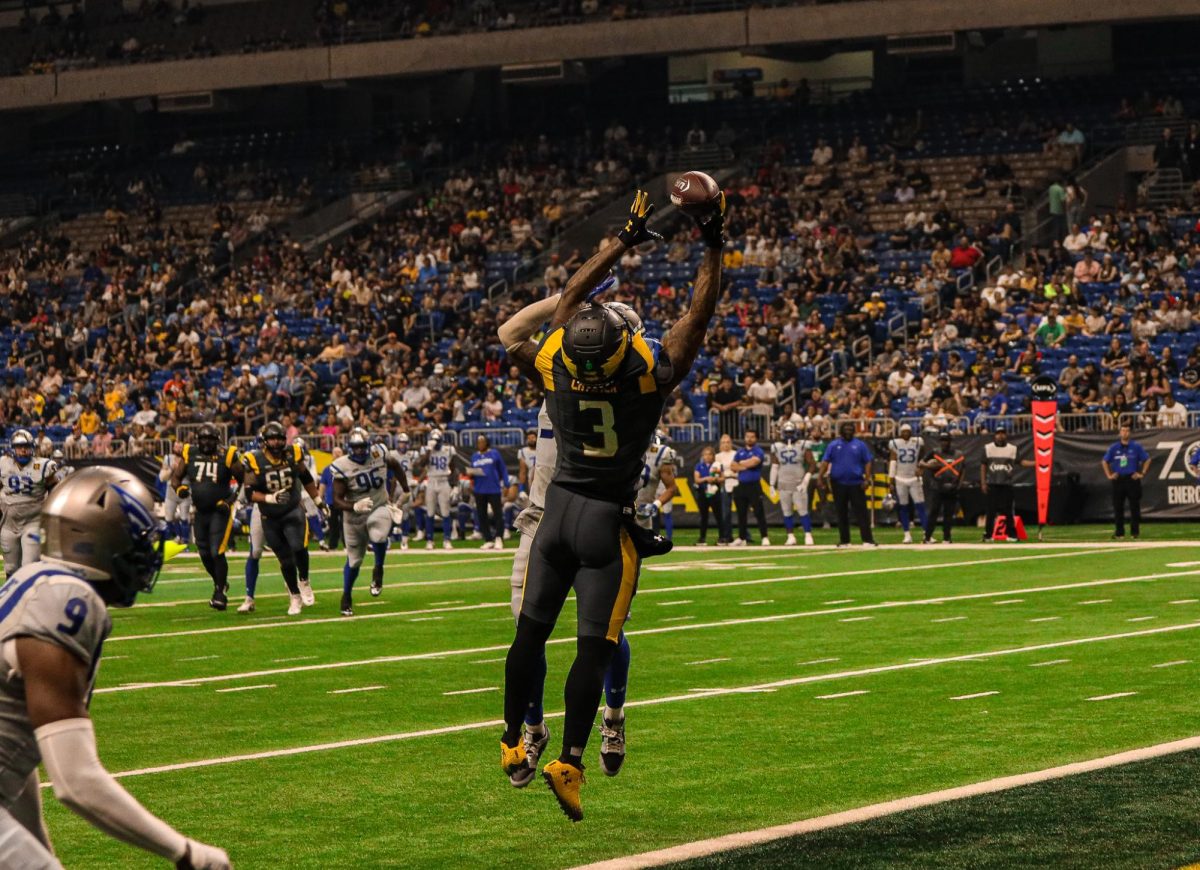Junior communication major and member of the UTSA women’s tennis team, Alena Shichkova, is defined by her perseverance. Every day she wakes up early to go to class at 8 a.m. Immediately after class, she goes to tennis practice for three hours a day, four times a week. She has more classes to attend until late afternoon, after which she helps the men’s tennis Head Coach Jeff Kader with his tennis clinics.
“I’m almost never home,” said Shichkova, remarking on her busy schedule.
Her propensity for hard work comes from her childhood. Shichkova was born in Russia in 1993 before moving to Ecuador at the age of six; her parents found it important to remind her of Russian sayings like, “God loves the number three,” and also stressing to her the grit and adaptability inherent in Russian culture. As a young child, Shichkova dreamed of being a dancer or ice skater, however her father, who had a passion for the game of tennis, signed her up for tennis camp at the age of nine.
Even with Shichkova’s initial apprehension, tennis became her life. In her teenage years, she was on the court for eight hours a day on weekdays while being home schooled on weekends. Eventually, she became so good against her Ecuadorian competition that she started to dream of taking her game to the next level.
She began to look into other possibilities for her life until finally, she found one.
“I heard that one of my peers had received a scholarship to go to university in America,” she explained. With her skills as a player, Alena was able to receive a full scholarship to play tennis at UTSA.
During her first year in America, Alena was forced to make several adjustments, not just to assimilate into American culture, but also to change the techniques she had learned on the clay tennis courts of Ecuador. The high altitude of Ecuador meant that players play farther from the baseline in order to allow themselves more time to prepare a shot. In the United States however, most matches are played on hard concrete courts where the ball moves faster, making players move closer to the baseline.
When asked what the hardest thing to adjust to when moving to America, Shihkova replied, “The food. It’s hard and expensive to shop for fresh and healthy food here.”
The UTSA women’s tennis team is currently 3-1 this year. Shihkova is excited about the team’s prospects this year, though she wishes that more students at UTSA would come to matches to support the team. The team’s next match against South Alabama on Feb. 13
As for Shihkova’s future plans, she hopes to go on to receive a master’s degree in International Studies. As someone who speaks three languages, she is already well on her way.











